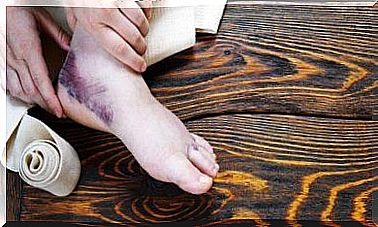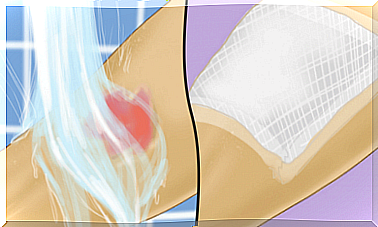Itchy Skin And The Effects Of Scratching
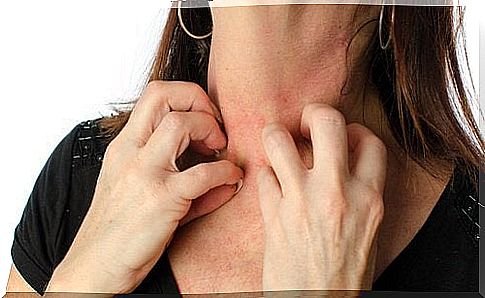
Maybe you didn’t pay attention to it. During the day, itching of the skin and automatic scratching of the irritated area really occur many times. Rushing your fingernails or any other object on a part of your body that is persistently itchy is one of the most pleasant feelings. But it is also the most common cause of skin irritation and even infections.
In this article you will learn what itchy skin is. What are the causes that make us scratch a given part of the body so intensely? You will also read about the pleasure of itching and what the effects of excessive scratching can be.
Itchy skin: how does it arise and what happens when we scratch?
Just as our internal immune system has its own defense mechanisms, our skin has its own defense system. Its purpose is to protect it from all threats.
Itching, or itchy skin, is a warning signal that the body sends out. He wants to let us know that there is a danger that something may stay on the surface of our skin. Or – worse – step inside our body.
There are many different stimuli that can lead to itching. And the most common ones that we come across on a daily basis are:
- dust
- hair
- clothes
- and insects
When they come into contact with the skin, receptors on its surface send a message to the central nervous system. He then responds with a feeling of itching.
What are the other causes of itching?
In the case of mild irritation and slight itching, a few moments of scratching are enough and the itching subsides. However, there are also other reasons that provoke the scratching reflex. These include allergic reactions, but also nervousness and anxiety.
Scratching is an automatic unconditional reflex that we cannot control. As it is an immediate reaction of the body to external threats, it is better that it does not depend on our will, because then we could unlearn it.
The brain sends us a signal so that we can get rid of the factor that is causing irritation or other danger to the body. Once scratching is over, it does not mean that the factor has disappeared and is no longer affecting the skin. Rather, the body is no longer sending the alarm signal that this part of the body is at risk.
The problem begins when scratching with fingernails or a pen stimulates other areas that have not been stimulated before. Suddenly, the itch zone grows larger and the itch time lengthens. This phenomenon provokes further scratching and an increased risk of irritation and even infection.
Why do we scratch when we are nervous?
Stress has many negative effects on our body. And as it turns out, not only on its inner part, but also on the outer parts of the body. In the case of skin, stress has been shown to either make it more itchy or make us more prone to scratching.
This is due to the activation of the immune system and an increase in the number of signals sent to the central nervous system via special nerve endings placed in the skin.
Many people exposed to severe stress, pressure from the environment or worry unanimously confirm the experience of a strong feeling of itching all over the body, which led to eczema or even infection.
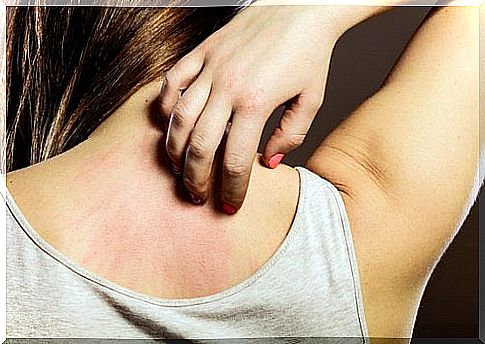
Stress increases the amount of immune cells in the skin and then activates them. Therefore, in stressful situations, we are more exposed to certain body imbalances manifested by acne or dry skin.
An example is nervous allergy, which is a consequence of the patient’s not being calm and relaxed. Incredibly, our thoughts and emotions can affect the amount and intensity of scratching.
According to some doctors, having to scratch certain areas of the body is a way to get rid of problems from the head. It is a person’s way of coping with stress (another similar example is nail biting).
The more you scratch, the more it itches
We are all familiar with the feeling of relief from scratching an intensely itchy spot. However, this blissful feeling usually only lasts a few moments. The relationship between itching and scratching can be compared to similar phenomena such as the sensation of pain and pleasure or action and reaction.
The scientific research that scientists are carrying out all the time is moving forward and confirming the presence of certain nerve fibers that are responsible for transmitting the itching sensation to the brain, which sends an immediate signal notifying you that you need to scratch.
Based on this research, she tries to explain why some people scratch themselves more intensely than others.
According to some, it is a lack of proper personal hygiene, but it is important to know that itching and the urge to scratch are sensations coordinated by the central nervous system, which, depending on what information it receives from nerve endings, constructs such responses in the form of reactions.
This unconditional reflex, which we cannot control, can sometimes become a bothersome disease and effectively prevent normal functioning. Even during sleep, it may happen that we unconsciously scratch ourselves to counteract itching in certain parts of the body.
Where is the key to the puzzle?
Why then, the more we scratch, the more it itches? This question kept many scientists awake at night until a group of researchers from the University of Saint Louis Medical in Washington (United States) found an answer.
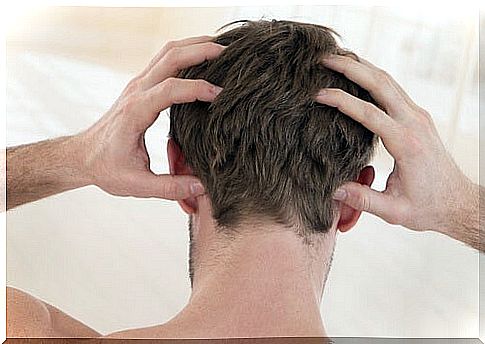
We believe the key to the whole puzzle is a neurotransmitter called serotonin, which the body releases every time we rub any object on our skin to counter the itching sensation.
According to research, it is this substance that is responsible for the fact that once we scratch ourselves, we feel the need to continue and our attention is completely focused on this place.
Scratching relieves itching, but also causes pain. The body reacts to this stimulus by secreting serotonin, and thus the itching sensation increases. These findings are very helpful in treating patients suffering from chronic itching of the skin.
If it was possible to block serotonin from communicating with nerve cells in the central nervous system (which is responsible for transmitting the itching sensation from the nerve cells of the skin to the brain), patients would not experience a constant urge to scratch.
While the drug is not yet available today, research continues in the hope of breaking the never-ending chain of itching and scratching reactions that, when beyond the norm, can be really bothersome.

